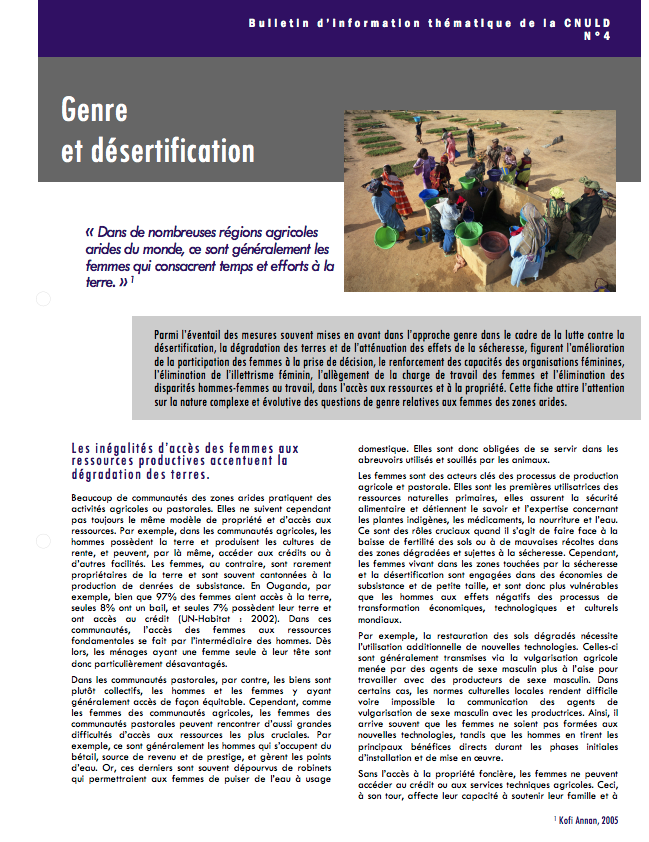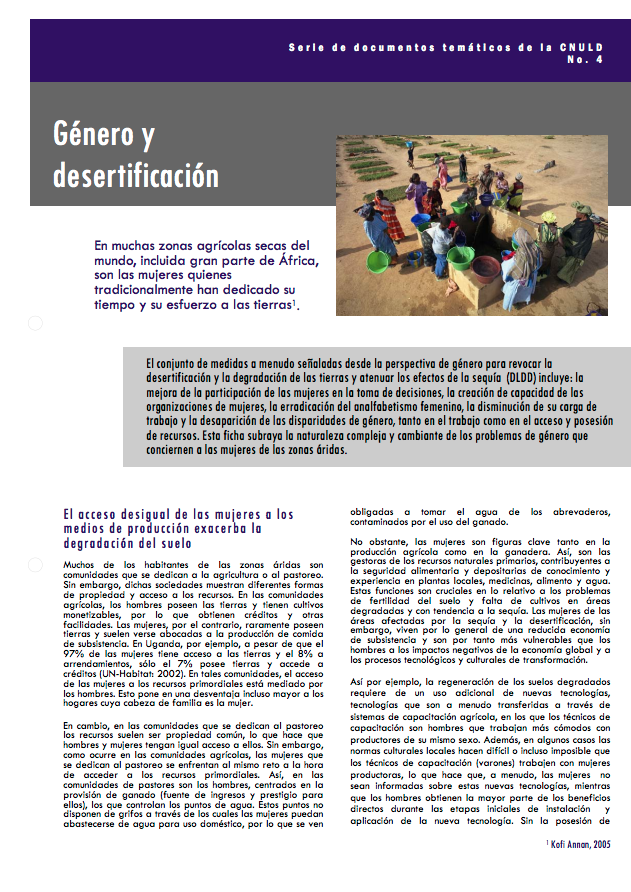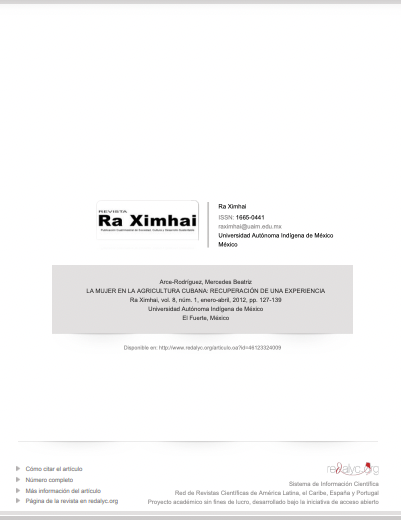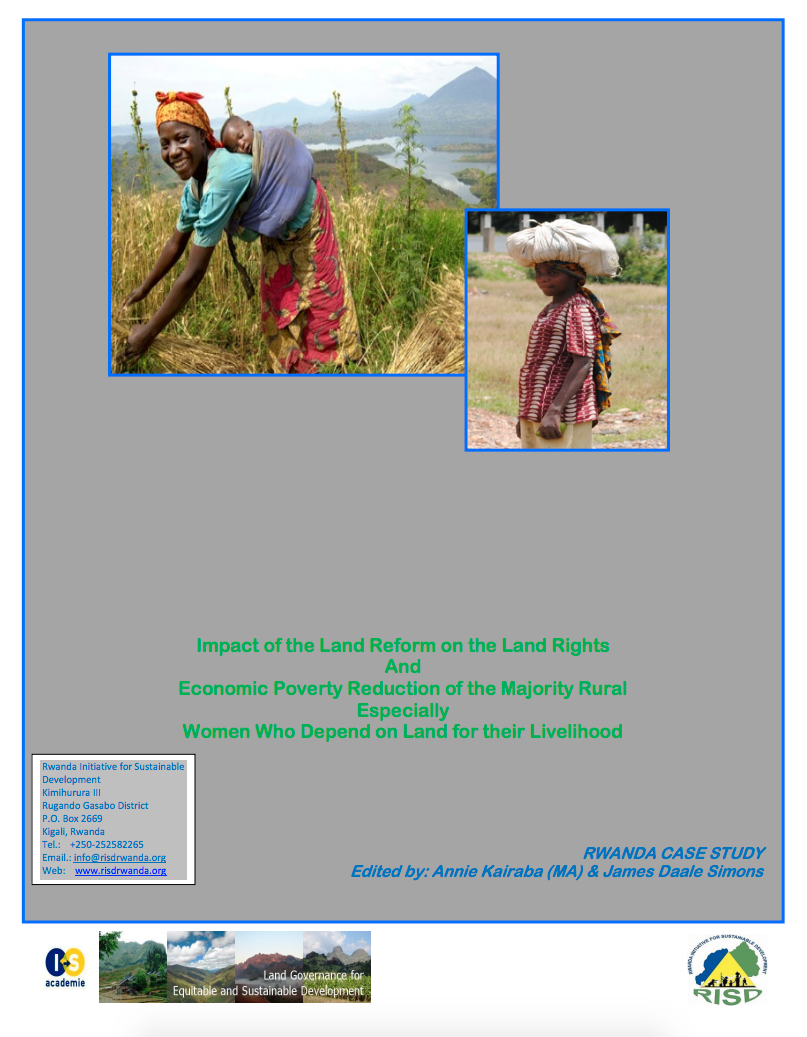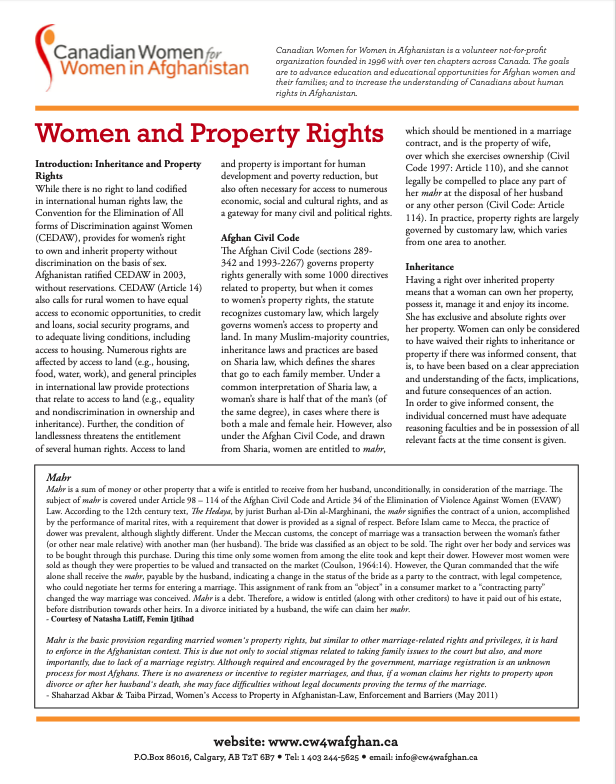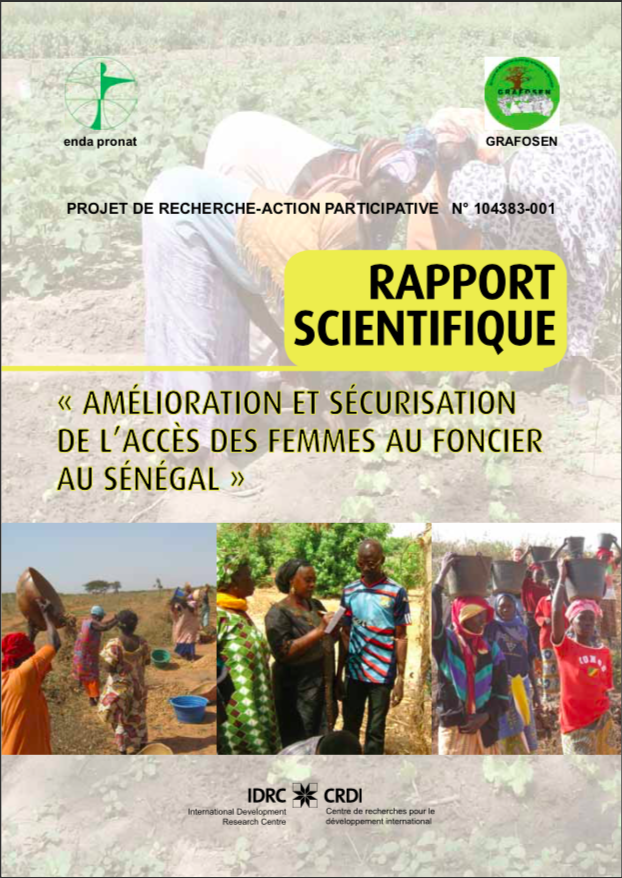Genre et désertification
Parmi l’éventail des mesures souvent mises en avant dans l’approche genre dans le cadre de la lutte contre la désertification, la dégradation des terres et de l’atténuation des effets de la sécheresse, figurent l’amélioration de la participation des femmes à la prise de décision, le renforcement des capacités des organisations féminines, l’élimination de l’illettrisme féminin, l’allègement de la charge de travail des femmes et l’élimination des disparités hommes-femmes au travail, dans l’accès aux ressources et à la propriété.

